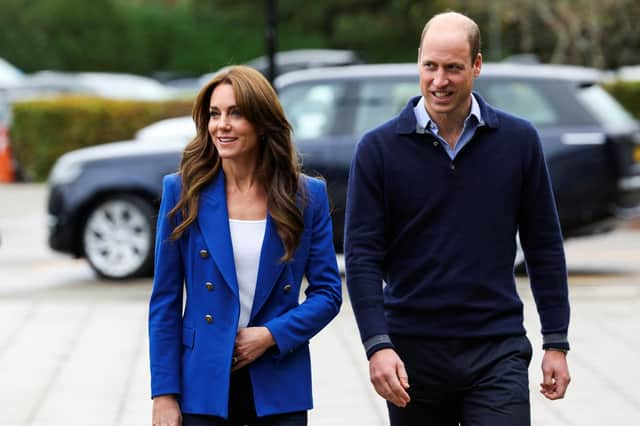Life on Tapp: We need to follow the lead of our younger Royals and encourage a national dialogue


Blaise Tapp writes: What the Royals are really for is a bar room discussion that will have been had in the days when a pint could be paid for in coppers and smoking a pipe was considered to be the hallmark of an intellectual. Many, myself included, predicted that the death of the Queen would only amplify the dissenting voices of anti monarchists, who have long been ranting on the outer fringes of the national conversation.
At a time when the NHS is on its knees, we’re told that we can no longer afford a much needed 21st Century railway link between the North West and London, not to mention the fact that millions are worried about how they are going to heat their homes again this winter, there are some who continue to ask why are we paying for posh folk to live in palaces?
However, there are still more people in favour of the monarchy than are against it and this is perhaps helped by the fact that the Windsors get behind many causes and campaigns that are close to the general population’s hearts. Perhaps the best example of this is the support that younger Royals, including the Prince and Princess of Wales have given to mental health charities.
Not only has their backing raised the profile of a subject that was, until relatively recently, a real taboo. Last week, the Royal Foundation, which is the Waleses official organisation, published a survey that showed 95 per cent of 16 to 24 year olds believe that their peers are having issues with their mental health. Four in 10 of those surveyed say they don’t control their own emotions very well.
These findings won’t come as a surprise to anyone who has any kind of contact with younger people because theirs is a generation which seems to worry more than any other. With good reason too. I mean, if the cost of living crisis wasn’t bad enough, there’s the prospect of having to live at home with their folks until they are 30 or when they can afford a deposit and that’s before we start on what’s happening to our planet, both environmentally and geo-politically.
I’ve met teenagers who are, quite literally, kept awake at night with concerns about global warming, which is understandable when world leaders procrastinate and even backtrack on an issue which is arguably more important than any other in their in-tray.
Yet, perhaps predictably, their concerns and fears are dismissed by those generations that have come before them. On reading an article about this very subject this week, I somewhat reluctantly headed for the comments section - almost certain of what horrors awaited me. I wasn’t wrong.
One liners such as ‘how would this lot have coped in the Second World War?’ ‘Get a grip - it’s called life’ leapt out from the screen, although it wasn’t all negative with one commenter pointing out that mental health is nothing new, it’s just that previous generations have either been unwilling or unable to discuss their woes.
Only good can come from encouraging millions of people to tell others about what is on their mind as, far from being a sign of weakness, it is further evidence that society is becoming far more understanding than has been previously.
The fact that younger folk today have more awareness about the troubles of others than their parents and grandparents can only provide hope for the future. Rather than tut and pour scorn on those who admit to feeling vulnerable, we need to follow the lead of our younger Royals and encourage a national dialogue.
This could be one of the most significant contributions yet from the nation’s most famous family.